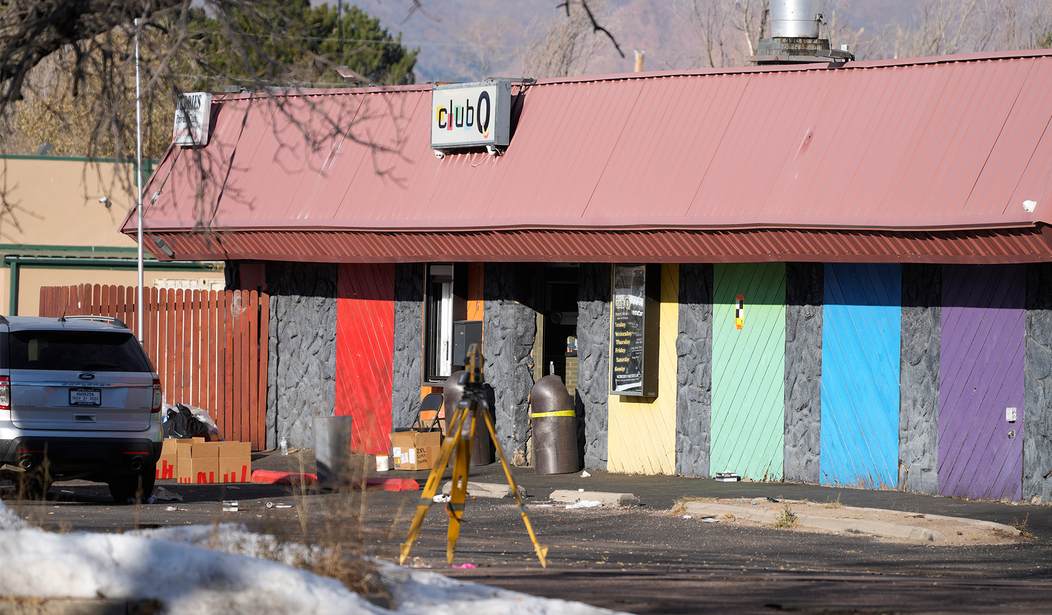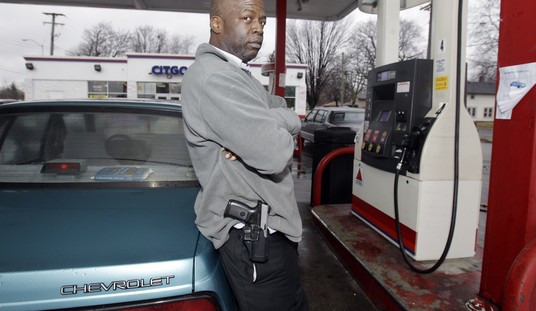According to anti-gun activists “red flag” laws are a potential tool that law enforcement can use when they’re dealing with someone they believe poses a danger to themselves or others, but I’m not aware of any state that has adopted an Extreme Risk Protection Order statute that mandates their use. Police and prosecutors have discretion about when and where to use the laws, and some jurisdictions may decide not to use them at all, which is their choice.
Now, however, some victims and family members of the Q nightclub shooting in Colorado Springs have announced plans to sue the El Paso County Sheriff’s Office because it did not seek a “red flag” order against the suspect accused of carrying out the attack when he was arrested in 2021 after threatening to harm his grandparents and allegedly vowed to become a mass killer in the future.
Officials with the El Paso County Sheriff’s Office said in a news release after the mass shooting that they did not seek an extreme risk protection order against Aldrich after the case was dropped in July 2022 because the threats made by Aldrich in June 2021 no longer constituted a threat “in the near future” as required by Colorado’s red flag law.Aldrich was able to legally buy guns again in July 2022, several months before the mass shooting, in which Aldrich is accused of using an AR-15-style rifle and a handgun.The notices of claim say members of the sheriff’s office were negligent in not seeking an extreme risk protection order against Aldrich.“…(M)embers of the El Paso County Sheriff’s Office negligently and unconscionably played a role in Anderson Aldrich possessing and using firearms inside Club Q,” one notice of claim reads.
This lawsuit isn’t going to get very far, but it will generate some headlines and attention to “red flag” laws in the meantime. The El Paso County Sheriff’s Office was never required to submit an ERPO to the local courts in the first place, and the suspect’s family could also have filed a “red flag” petition on their own if they believed he was a danger to himself or others, but never did so.
Even if the sheriff’s office had filed for an ERPO and removed the ability for the suspect to legally purchase a firearm, there’s no guarantee that the order would still have been in place when he carried out his attack. According to court records the suspect was first arrested and charged with threatening his grandparents in June of 2021, and if a “red flag” order had been filed and approved at the time it likely would have expired a year later. The suspect purchased the weapons used in the nightclub attack in July of 2022 after those original charges had been dropped, and more than a year after he was first arrested, so it’s likely that the state’s “red flag” law wouldn’t have come into play regardless of the sheriff’s decision not to pursue an ERPO in 2021.
Courts have also repeatedly determined that the police are not responsible for our individual safety, including the Supreme Court’s 2005 decision in Castle Rock v. Gonzales, in which a 7-2 majority on the Court held that Jessica Gonzales had no claim against the police department in Castle Rock, Colorado for refusing to enforce a restraining order that had been issued by the local courts against her estranged husband, who abducted and murdered their three children. As the Court opined, even though Colorado law stated that police “shall” (not may) “enforce a valid restraining order whether or not there is a record of the restraining order in the registry.”
A well established tradition of police discretion has long coexisted with apparently mandatory arrest statutes.
“In each and every state there are long-standing statutes that, by their terms, seem to preclude nonenforcement by the police… . However, for a number of reasons, including their legislative history, insufficient resources, and sheer physical impossibility, it has been recognized that such statutes cannot be interpreted literally… . [T]hey clearly do not mean that a police officer may not lawfully decline to make an arrest. As to third parties in these states, the full-enforcement statutes simply have no effect, and their significance is further diminished.”
… The deep-rooted nature of law-enforcement discretion, even in the presence of seemingly mandatory legislative commands, is illustrated by Chicago v. Morales,527 U. S. 41 (1999), which involved an ordinance that said a police officer “ ‘shall order’ ” persons to disperse in certain circumstances, id., at 47, n. 2. This Court rejected out of hand the possibility that “the mandatory language of the ordinance … afford[ed] the police no discretion.” Id., at 62, n. 32. It is, the Court proclaimed, simply “common sense that all police officers must use some discretion in deciding when and where to enforce city ordinances.” Ibid. (emphasis added).
Colorado’s “red flag” law doesn’t demand that law enforcement seek out an Extreme Risk Protection Order at every opportunity. Again, it’s supposed to be one tool that police and prosecutors could use if they believed the situation warranted seizing an individual’s firearms. As we’ve seen recently with New York Gov. Kathy Hochul’s mandate to state police, anti-gunners don’t see “red flag” laws as optional, but something that must be deployed as often as possible, even if it means police are so overwhelmed with confiscating firearms that they don’t have time to investigate major crimes.
I feel for the victims and the family members who were subjected to this suspect’s murderous rampage, but blaming his actions on the lack of a “red flag” petition is entirely off-base. The suspect himself is the one who bears the primary responsibility for his attack, though I’d say the family members who refused to press charges after he threatened his grandparents also have some culpability, morally if not legally. It was that decision that prosecutors say made it impossible to pursue their case against him, and if they had decided on a little tough love instead of helping him avoid consequences for his criminal actions he likely would have been behind bars and unable to carry out his plans regardless of whether a “red flag” order had been issued.









Join the conversation as a VIP Member